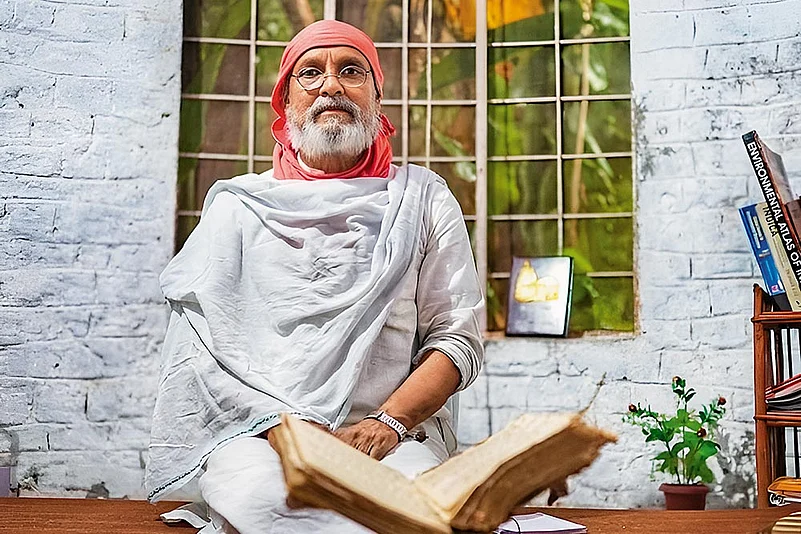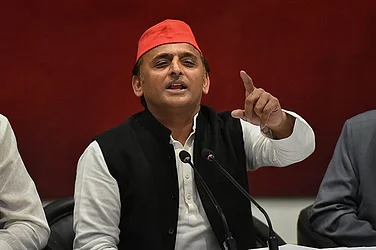Well-known environmentalist Dr Anil Prakash Joshi championed for years the cause of the Gross Environment Product Index before the Uttarakhand government became the first state in India to adopt it recently. Going beyond ecosystem services to ecosystem growth, it is based on calculations of not only the ecosystem services, but also how much we give back to the environment. Edited excerpts from an interview with Naina Gautam:
You have been championing the cause of Gross Environment Product (GEP) Index for long. How is it shaping up?
GEP is a parallel system for measuring ecosystem growth. For example, the rain water you harvest ultimately rejuvenates your rivers and water bodies. It has become an imperative to harvest more and more water to enrich rivers and water bodies. I am glad that the Uttarakhand chief minister released the GEP index recently.
How do you see the relation between the Himalayan ecosystem and rivers?
If you look at the green mountains that we have and the rivers that run their course down these mountains, you know that the simple principle of rivers is that they run on a gradient. Any mountain people are not able to consume more than 10% of their river water. 90% water flows down steam and is fed to rest of the country.
Rivers also have an important role as an ecosystem in themselves. They cause vertical erosion, making more and more mountains. Most of our rivers are like our arteries and if arteries are blocked due to some reason, there is a disaster in the form of the rivulet drying up or there is a landslide.
You have been working in the Himalayas for decades. How has the state of rivers changed according to you?
Unfortunately, Uttarakhand and in fact the whole country does not have major basins, which would harvest water for rivers to be in a very good state. In Uttarakhand, the Ganga, Yamuna, Kosi, and many other rivers that we have are not doing as well as they used to do about 30 or 40 years ago.
The rivulets or small rivers, too, which come from the mountains or from other catchment areas, are not doing well. And that is the reason the quality and quantity of water in most of the rivers in the country is not in a good state. So is the case in Uttarakhand, too.
River are now known for having either dried up or bringing floods. That is the identity, unfortunately, we are left with.

Springs have been drying up in Uttarakhand? How do you assess the revival efforts?
To revive the rivers, streams and springs, let us remind ourselves that earlier rain water used to go underground and enrich the aquifers, which in turn would come out as streams or springs.
When deforestation occurred, most of the springs began to dry up and die. The barren catchment could not catch the water.
Now look at Chir pines, which are a major source of fire. You know that their root system is very shallow. And that is the reason most of the places, which have Chir pine forests, see springs below drying up. When most of the forests either fell or trees like Chir pine took over, the water conserving efficiency of forest died. The catchment area died, too.
The focus has to be on climatic forestry, which we define as a forest which should grow trees matching weather of that place.
What is your outlook for rivers particularly the Ganga?
I have been watching the Ganga for the last one decade now. And I have also watched Namami Gange. My suggestion is that you need not clean the Ganga, you somehow increase the water level in the Ganga and it will automatically clean itself. The rivers have a quality, the faster they run, the more they clean themselves.
Today the quantity of water is less in many rivers, not only the Ganga. So naturally, if you somehow, focus on increasing and improving the catchment of the Ganga across most of the river, the water quantity would go up and clean the Ganga by itself. You need not to do anything. More focus should be on water collection and rainwater harvesting across small and big rivers.
This time the Uttarakhand state has very seriously begun harvesting rainwater through the protocol we have been following. Thirteen districts, including the mountain districts, have now the single objective to harvest water, which will ultimately recharge the rivers. I am quite sure next year their GEP on water will be very high.
MORE FROM THIS ISSUE
What would be your prescription for balancing the environment and economic development in Uttarakhand?
Everywhere in the world, economy has been seen as more important than the ecology, but there has to be a balance between economy and ecology for our own good.
We will have to be now more serious about maintaining a fine balance so that GEP and GDP go together. Remember, economy may be good for a handful of people, but once ecology is in good health it will empower billions of people not only around the Himalayas or in India, but everywhere in the world.
Besides, the other quality of the Himalaya is that it acts as a climate governor.































